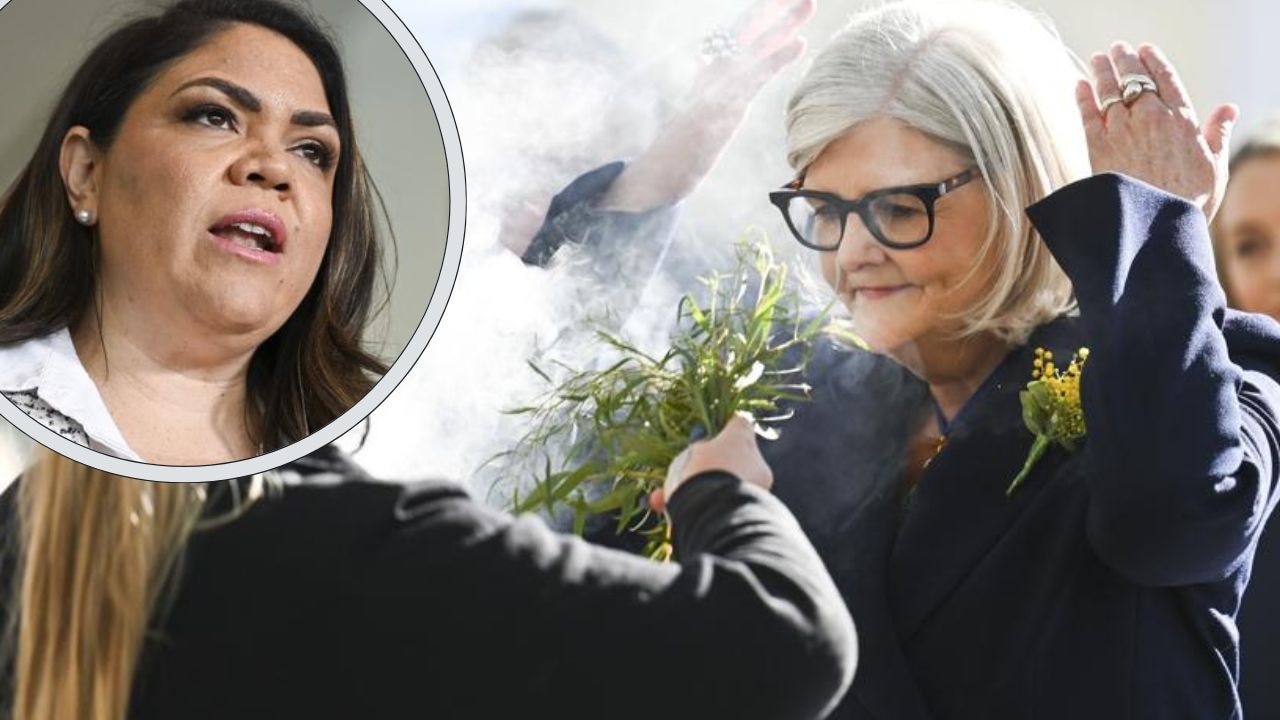NSW Police forensic expert turns her focus to the mental health of her colleagues
Police officers have to witness a lot of darkness. With 29 years in the NSW thin blue line, Rashelle Conroy’s brief is to bring the light back into her colleague’s lives.
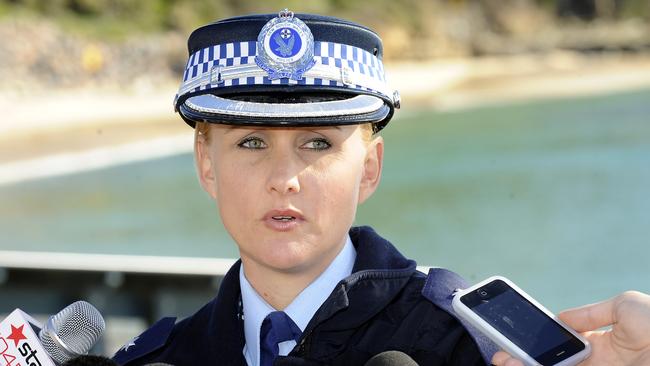
NSW
Don't miss out on the headlines from NSW. Followed categories will be added to My News.
For the police officer at the helm of the new health, safety and wellbeing police command, it’s personal.
With 29 years experience in the cops, on the front line and most recently as commander of Forensic Evidence and Technical Services Command, Assistant Commissioner Rashelle Conroy is no stranger to graphic, confronting scenes and the exposure to trauma that can affect the most resilient of officers.
That’s why she is determined to help protect the workforce, get injured officers back in the job in a way they feel safe, prepared and comfortable and give those ready to leave a dignified exit.
“My attitude as a commander has always been people first, for everything that I do,” Assistant Commissioner Conroy told the Saturday Telegraph.
“Since taking up a leadership role in 2006 I have managed physical and psychological injuries and with a background in forensics, obviously with staff there and in other areas we are having to manage high trauma areas, I am really passionate that we look after our people,” she said.
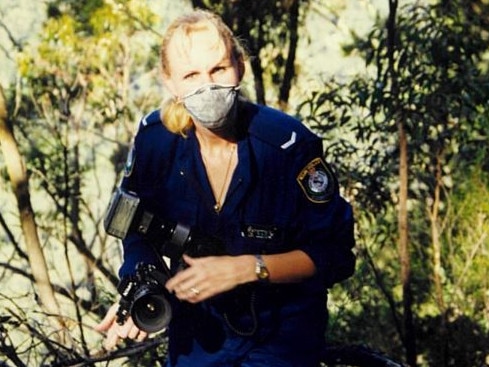
“It’s quite personal for me, having seen colleagues suffer injury at the workplace over all these years due to the type of work we do it’s really important to do whatever we can to make sure we support them in their return to work or if it’s right for them to leave then do so with a dignified exit and support for their life after the police force.”
One of the key initiatives under the new stand-alone command is the establishment of the Treatment and Recovery Unit with hubs in Newcastle, Goulburn and Dubbo.
Each hub has a treating psychologist, physiotherapist and a strength and conditioning coach who understand the physical and psychological demands of policing and develop individualised treatment programs to meet officers’ recovery goals and facilitate a safe and sustainable recovery at work or return to work.
Assistant Commissioner Conroy said the hubs, also operating in metro areas, “ensures that officers have access to evidence-based, work focused treatment for both physical and psychological injuries”.
For officers who are injured and permanently unable to return to work, the NSW Police Force has established a Career Transition Unit.
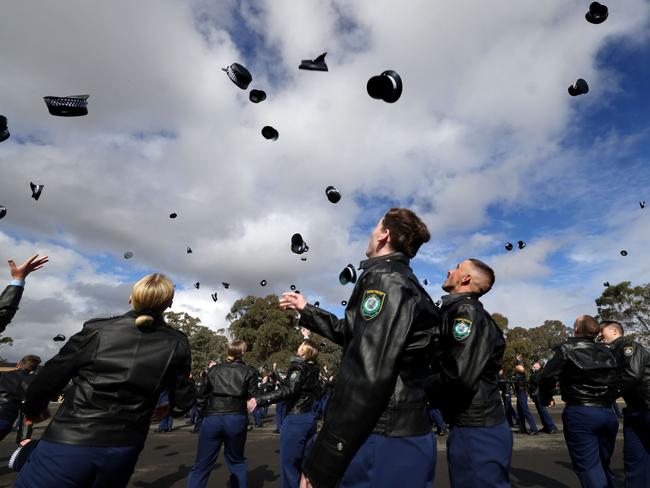
“For injured workers unable to return to their pre-injury role or an alternate suitable role within the organisation we recognise that this is a difficult time for them and their families.
“Career Transition Officers provide resources and vocational expertise to support officers achieve a dignified exit and successfully transition to life after NSWPF.”
Assistant Commissioner Conroy said the NSW Police Force had also increased the number of Recover at Work Advisors and Specialists to support workers and the new Command in achieving “timely, sustainable recovery” and return to work following a work-related physical or psychological injury.
“The unit delivers recovery at work processes and practices, aligned to the evidence supporting the health benefits of good work.”
The commander said mental health clinicians were continuing their work out in the field “building rapport on the ground with troops, aiming to reduce stigma and encourage early help seeking”.
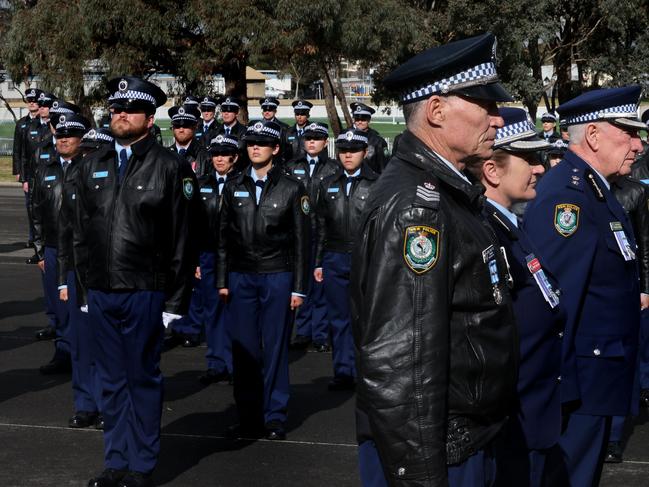
The clinicians have recorded over 6000 interactions with officers in the ground so far.
Assistant Commissioner Conroy said continually developing mental health awareness training, which starts at the Academy, was key to creating a culture that promoted psychological wellbeing.
“Educating our people is so important – the message reinforced through all of our training is that psychological wellbeing is just as important as physical wellbeing.
“We want it talked about and normalised so our officers feel comfortable having conversations about mental health and seeking help if they need it.”
She said recent partnerships and joint training with agencies such as the Black Dog and Phoenix Australia had been hugely successful.
“We were able to show that those who attended started more mental health conversations and made more referrals to support services, so we will now be rolling these sessions out to all sergeants across the organisation.”
The Force is also in the process of embedding occupational health nurses in regional areas in addition to occupational health nurses already located in metro areas to conduct medicals and proactive periodic health checks aimed at preventing physical injuries and health risks.
President of the Police Association Kevin Morton said a huge part of the organisation’s work was helping police when they are injured.
“There is no other job quite like policing. It takes a special person to be a cop.” Mr Morton said.
“That’s why it is so important programs are in place to help them through the dangers of policing and recover if they are injured.”
He saod Allan Sparkes, a cop of over 20 years and one of Australia’s most highly decorated citizens, is working with the Police Association and NSW Police Force to make sure police officers know there is someone here to help.
“Police officers have to witness a lot of darkness. Things that are extraordinary to us, police deal with every day; violence and assault, critical incidents, people at their worst, and at their best,” Mr Morton said.
“It is so important they can share that lived experience with people that have been through the same thing, and people that have come back from injury.”



